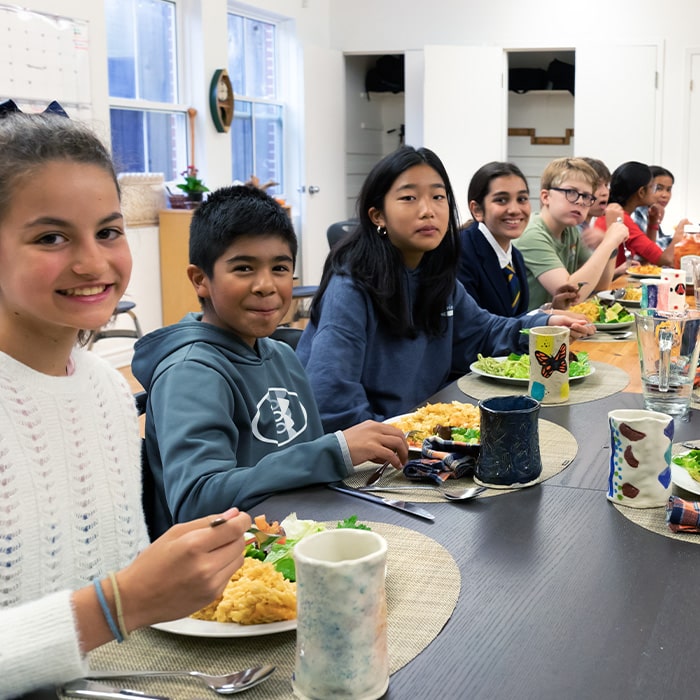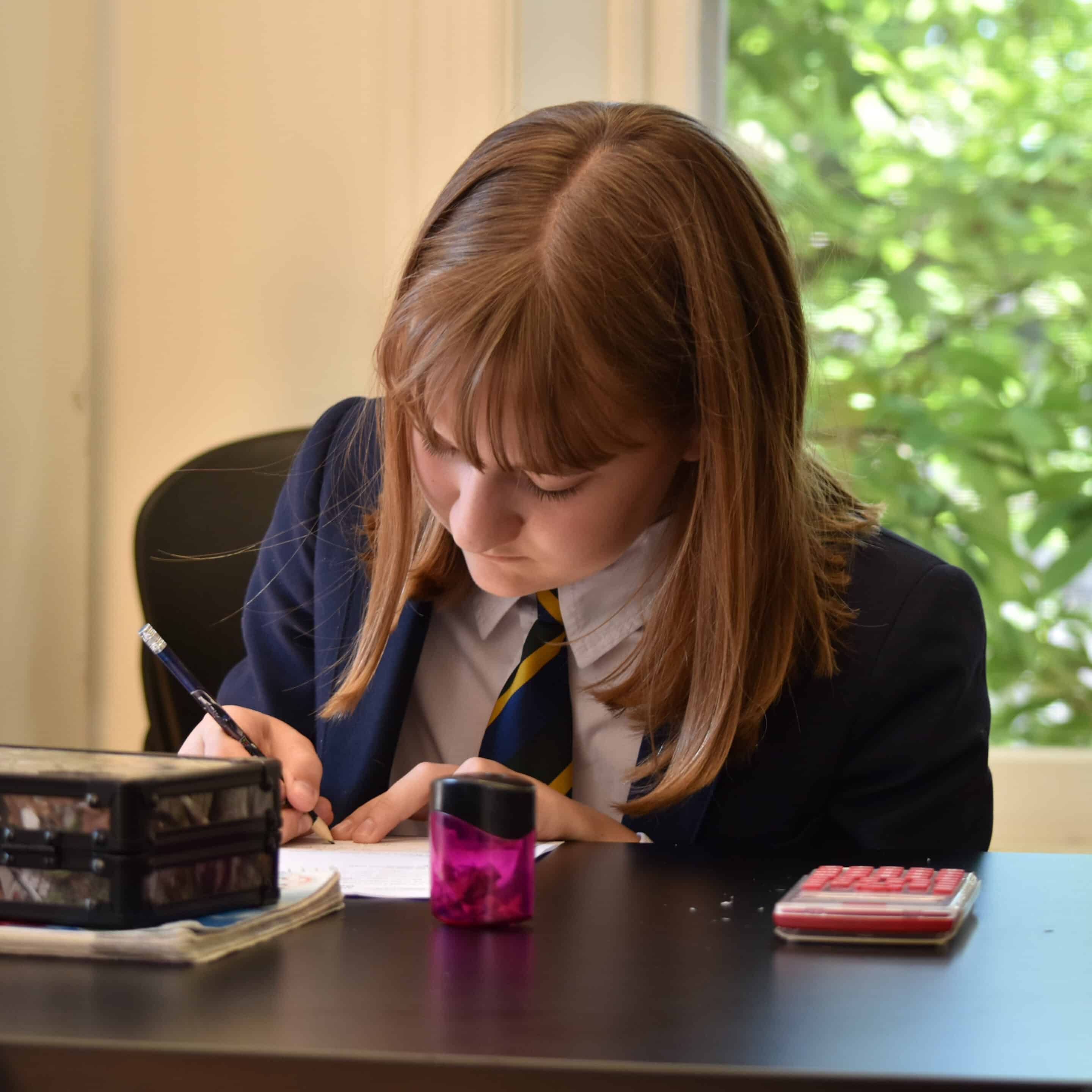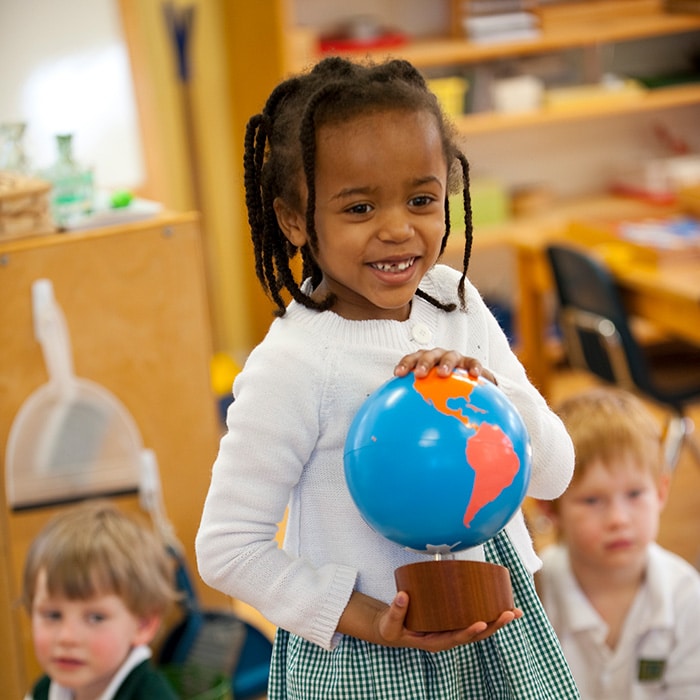Middle school
“Here you see creative and intelligent teaching”.
Middle School Parent
Middle school
“Here you see creative and intelligent teaching”.
Middle School Parent
Adolescence is a time of great physical and emotional change. These emerging adults have a need to orient themselves to these changes while also satisfying their strong need to belong.
DEVELOPMENTAL CHARACTERISTICS
Clanmore provides for this by carefully preparing an environment in which the adolescents feel essential and valuable through their work within their community. Adolescence is a time of discovery and change, as young people navigate the shift from childhood to adulthood and begin to make sense of the social norms that shape grown-up life.
Clanmore uses a pedagogy of place model in order to utilize the resources available within our classroom, school community, neighbourhood and beyond, to develop curriculum and provide students with real, authentic and meaningful work. The interests of the students will drive much of the activity and the amount of time spent on activities. This approach allows for phenomenal exploration, which will lead to a curriculum that fluctuates somewhat year after year.
When the adolescent is given the opportunity to contribute to a community through efforts of his or her own, he/she is able to develop morally and socially, while giving meaning to the academics studied in the classroom. By exposing the adolescent to real and meaningful work within their community, they are helped to identify their own unique gifts, talents and passions. It gives them a sense of valorization, defined as a feeling of being capable of success through his or her own efforts and merits. Valorization occurs through contributions to one’s community and recognition for these contributions. This promotes the deep sense of belonging, which is so essential to adolescents.
PRACTICAL LIFE
In the Middle School Program, students continue practising the Practical Life skills that have been reinforced previously in their Montessori education.
Some of these include the maintenance and care of their environment through weekly and daily jobs. The adolescents also plan and prepare their own lunches on a rotating basis. This involves everything from selecting a well-balanced menu, budgeting, preparing, and serving the food. The Ministry of Health certifies students in Food Handling in order to ensure that proper and safe food preparation is maintained.
Students also participate in community service endeavours through their individual interests and motivations. Students take part in regular seminars, linked to every academic area of the curriculum, in which grace and courtesy is modelled and practised. Oral presentations are an integral part of the Middle School experience.
PRODUCTION AND EXCHANGE
Students build economic independence through the development of a student-run economic enterprise. This is a valuable aspect of the curriculum and contributes to social cohesion within the program. The shared work of an economic endeavour provides the means for building responsibility and freedom for the adolescent.
Part of this program takes the form of a weekly adolescent-run café, open to Clanmore families and friends. Students also plan yearly markets to sell their merchandise, often created through links to their studies in other areas of the curriculum, thus illustrating the interconnectedness of the subject areas. Activities may include making preserves while studying bacteria in science, soap making as part of a chemistry unit, photography through the study of optics, etc.. Students decide as a group what portion of the money earned goes back into the business, what portion gets donated to a charitable organization, and how to spend some of the profit for the betterment of the program.
Students have an opportunity to manage certain aspects of the micro-economy as they gain experience in the program and develop expertise. Involvement in this aspect of the program allows the adolescent to gain an understanding of and responsibility for economic independence.
HUMANITIES
The humanities area of the curriculum encompasses all aspects that have helped to define us as humans – geography, history, politics, economics and current events.
The program places emphasis on the evolving stages of civilization, from village to megalopolis, with a goal of seeing our time, place and culture as part of a continuing endeavor of the whole of humanity. One year of study focuses on the transformation of humans through history, both internationally and locally, while the following year focuses on the growth of Canada as a country from Aboriginal Peoples through Confederation.
OCCUPATIONS (SCIENCE)
The occupations approach to science takes science from mere text, which may not be very interesting, and makes it an active, rather than passive, experience through hands-on activities and meaningful work.
Science is embedded into each of the occupations and can include things such as food preservation, bee keeping, organic gardening, bicycle repair, pond study, etc.. Occupations vary in order to create a well-rounded science curriculum that covers a variety of scientific fields, such as zoology, botany, chemistry, physics, astronomy, etc.. Students receive key lessons in each of the units being studied and then are given the opportunity to select hands-on projects related to that area of study according to their personal interests. Students share work with their peers in a ‘sharing of knowledge’ session.
The meaningful work of the occupations extends to all areas of study, and at the same time provides adolescents with the motivation to become ‘experts’ in specific occupational areas.


MATHEMATICS/GEOMETRY
Clanmore’s mathematics curriculum coincides with the Ontario Curriculum and includes real work through the occupations component of Middle School, in particular the lunch program and the micro-economy program.
Students have the opportunity to learn through a variety of methods, including group lessons, independent work and project work. Concrete application of concepts are given through real work and Montessori materials and manipulatives, whenever possible, in order to solidify concepts learned. Concepts studied include:
• Number Sense and Numeration
• Ratio, Rate, and Percent
• Geometry and Measurement
• Fractions and Decimals
• Data Management
• Perimeter, Area, and Volume
• Transformational Geometry
• Integers
• Patterning and Algebra
• Probability
• Square Root and Pythagoras
• Circles
Similar to a Montessori education at other levels, students are allowed to make discoveries on their own. This ensures that these concepts are retained.
As Montessorians, we continue to take an individualized approach, understanding that not all children learn in the same way or at the same pace. Children are allowed to make mistakes and come to the realization that often it is through these mistakes that we learn the most. Students are formally evaluated and tested on their understanding of concepts as each unit is completed.
Students also take part in math seminars regularly. This acts as an informal evaluative measure and allows the students to solidify their knowledge by explaining processes
to their peers.
LANGUAGE
Students at the Middle School level continue to refine the skills first presented in the Elementary program. They are offered a variety of written expression opportunities to practise what they have learned.
Clanmore’s Middle School curriculum includes lessons in language arts, such as grammar, sentence analysis, spelling and vocabulary. There is a shift in focus at the Middle School level however. Language is taught so that it can be used not only for academic purposes but also for self-exploration and expression. Students are introduced to a variety of works, including fiction, biography, poetry, prose etc.. They take part in literature studies throughout each year that are comprised of reading aloud, discussion through Socratic Seminar, character analysis and comprehension. Novels studied are selected by the teachers and/or students.
Students also participate in writing workshops which include instruction on a variety of types of writing, including poetry, biography, narrative, descriptive and essay writing.
TECHNOLOGY
Computers are available to the students in the classroom and are used in a variety of ways eg. word processing, spreadsheets, PowerPoint presentations and Movie Maker.
Word processing skills are reinforced through the completion of essays and written work typed from all curriculum areas. Proper keyboarding skills are practised and reinforced. Students develop an understanding of electronic presentation and movie making programs and use these for a variety of presentations and marketing work.
The Internet is used for research purposes for essays and papers.
SELF-EXPRESSION
Self-expression, both physical and creative, is at the heart of the adolescent’s needs. Through music, visual and dramatic arts, language and physical activity, the adolescents at Clanmore are able to explore their emerging identities and values, and discover their developing skills and abilities.
Students of this age have a natural predisposition towards creative expression in many forms. Clanmore offers outlets for this expression through guitar, piano, vocal and other musical instruction, photography, sculpture, painting, drawing, poetry, creative writing, drama among others others.instruction, photography, sculpture, painting, drawing, poetry, creative writing, drama amongst others.
Integral to any adolescent program is the opportunity for adolescents to exert and challenge themselves physically. Students participate in a scheduled physical education program, in which they are encouraged to build a personal fitness plan and are given opportunities to participate in a variety of team sports.
Students also participate in other activities, including two Odyssey canoe trips, one at the start of each new school year and another mid-year. These trips challenge students in unique, diverse and stimulating ways.

ACADEMIC Excellence
- Challenging and engaging study of mathematics, languages, humanities and sciences
- Socratic seminar and experiential learning as key educational formats
- Cross-disciplinary program integrating classroom and real world experiences
- Enriched curriculum and opportunities
for individualized programming



